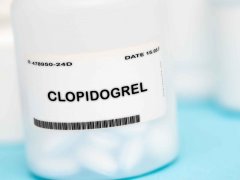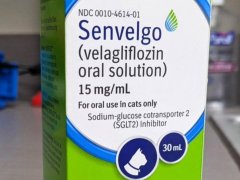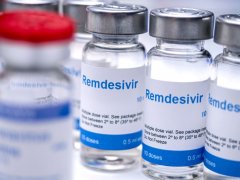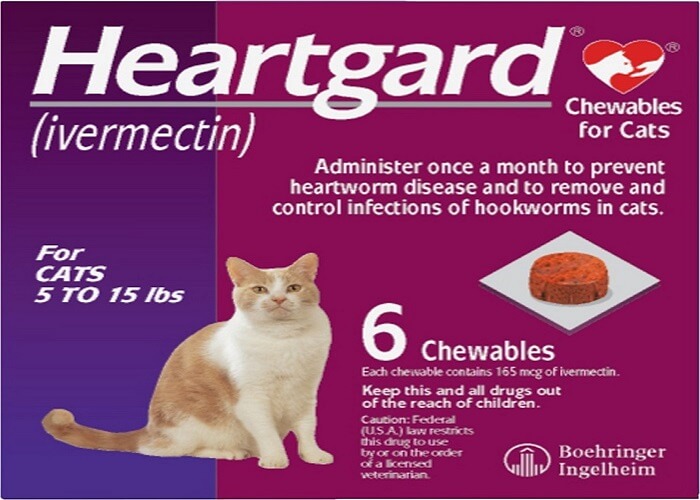
Heartgard Chewables for Cats is a brand name of oral chewable tablet heartworm prevention product containing the main ingredient ivermectin and manufactured by Boehringer Ingelheim Animal Health. In this article, you’ll learn what Heartgard is, what parasites it targets, how it works, side effects to look for and some frequently asked questions.
Heartgard for Cats Overview

About Heartgard for Cats
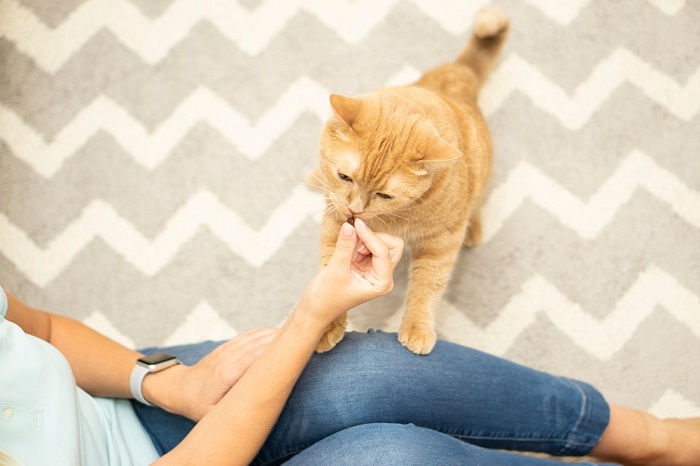
Heartgard contains the main ingredient ivermectin, which is an avermectin antiparasiticide that falls under the larger family of the macrocyclic lactones class of antiparasitic drugs.
Ivermectin works by binding to neuromuscular signaling channels in invertebrates called glutamate-gated chloride ion channels. When it binds to these channels, it leads to paralysis and death of the parasite.
Mammals, like dogs, cats, and humans, lack these specific glutamate-gated chloride ion channels, lending to a high degree of safety for this drug in most cases.
Ivermectin has a broad spectrum of action against many different types of internal parasites and some external parasites in animals. In cats, Heartgard is FDA approved for heartworm prevention, as well as for the removal and control of intestinal hookworms.
What Does Heartgard Do for Cats?
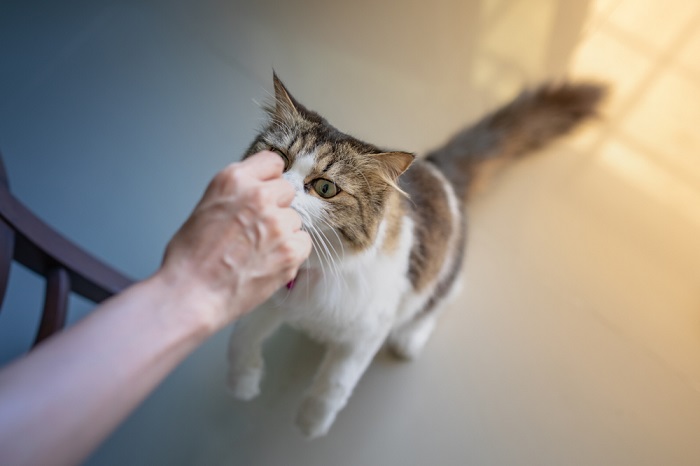
Heartgard Chewables for Cats is given once a month to prevent heartworm infection, as well as eliminate and prevent intestinal hookworms.
As an approved heartworm preventive, Heartgard for Cats is used to prevent feline heartworm disease by eliminating the tissue stage of heartworm larvae.
Heartworm disease is caused by the parasitic worm Dirofilaria immitis. Unlike many parasitic worms, the heartworm is not an intestinal parasite, but one that occupies the blood vessels near the heart.
Heartworms are introduced through an infected mosquito. The mosquito becomes infected after taking a blood meal from an infected dog, where it acquires the first stage larvae, called microfilariae, which are living throughout the affected dog’s bloodstream.
The heartworm larvae mature inside the mosquito until they reach their third larval stage, which is the infectious stage. At this point, they dwell near the mosquitos’ mouthparts, so that when it bites its next animal host, the infectious larvae can enter a new host. It is at this point that cats become affected.
Although dogs are the heartworm’s primary host, cats can also develop infection, though the nature of their infection does differ from dogs.
In cats, the infectious larvae develop into stage 4 larvae over about two months. Unlike in dogs, where the chambers of the heart are primarily targeted as a residence by developing heartworms, hence their name, in cats, the developing worms primarily set up shop in the blood vessels called the pulmonary arteries. The main pulmonary artery leaves the heart and branches off as it reaches the lungs, to provide the lung tissues with blood.
The ivermectin in Heartgard is primarily effective in cats earlier on against this fourth larval stage, prior to developing into an adult worm. In this way, if a cat receives Heartgard regularly, or at least during the early stage of infection, heartworm disease can be prevented.
Unfortunately in cats, there is no safe or approved treatment for killing adult worms once they fully mature. Heartgard is therefore not considered a treatment for fully developed heartworm disease in a cat.
The danger of heartworm disease in cats lies not in the amount of worms a cat may have, as most cats have six or fewer worms present. Unlike dogs, cats instead have a high sensitivity to the presence of the worms.
Cats develop an inflammatory response to the adult worms, which is called heartworm associated respiratory disease, or HARD. This leads to the death of most of the worms, and induces changes in the lungs that can often be misinterpreted as asthma or bronchitis.
Other than these signs, most cats endure this first phase of infection.
The next part of heartworm disease that is even more dangerous for cats may not occur for two to three years later, when the adult heartworms reach the end of their lifespan and begin to die. This is the phase that may often lead to an acute and fatal lung injury that occurs secondary to the cat’s immune system reacting to even just one dying worm.
Because heartworm disease in cats may often go undetected (testing is not as reliable in cats as it is in dogs), can have severe consequences and has no safe treatment options, use of preventive medications like Heartgard is the main approach to addressing heartworm disease in cats.
Heartgard for Cats is also labeled for killing and preventing hookworms in cats. Cats are chiefly affected by the hookworms Ancylostoma tubaeforme and Ancylostoma braziliense.
Hookworms are a type of bloodsucking parasite that lives in the intestinal tract. Cats can get infected either by ingesting the newly hatched larvae in the environment or when the larvae burrow into the skin. Humans can also develop a condition called larval migrans, where hookworm larvae can penetrate the skin causing itchy, irritating lesions.
Hookworms are most common in overcrowded, warm, moist environments with poor sanitation. Young kittens are more often affected by hookworms, with adult cats sometimes showing no obvious signs that an infection is present.
The ivermectin in Heartgard is capable of killing hookworms at any life stage. Further infections can be prevented with continuous Heartgard use.
Side Effects of Heartgard for Cats
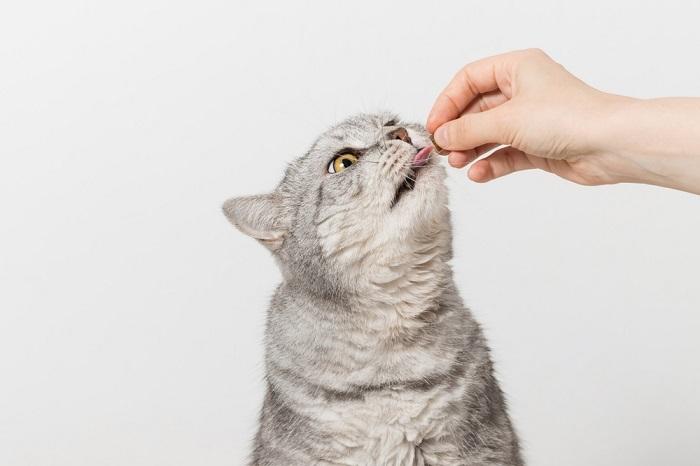
Ivermectin has a very large margin of safety in cats. The MDR-1 mutation seen in some dogs that can lead to signs of neurologic toxicity with ivermectin use is not seen in cats.
According to the manufacturer, clinical studies involving more than 3,000 doses of Heartgard for Cats showed signs of vomiting and diarrhea in less than 0.5%.
No adverse effects have been seen in kittens getting about twice the recommended dosage and in adult cats receiving about four times the recommended dose.
A wide margin of safety has also been established at three times the recommended dose in pregnant and breeding queens, as well as breeding tomcats.
Adverse effects caused by massive overdoses are typically seen within 10 hours of ingestion. These signs may include agitation and vocalizing, poor appetite, tremors and disorientation. Neurologic signs caused by large overdoses typically diminish over several days and most cats will completely recover within two weeks to one month.
If you are ever concerned that your kitty may have developed side effects while using Heartgard for Cats, or any oral preventive medication, contact your veterinarian, the ASPCA Animal Poison Control Center (1-888-426-4435) or Pet Poison Helpline (1-855-764-7661) for further advice.
The use of Heartgard is considered safe in conjunction with many other commonly used products, including dewormers, vaccines and antibiotics, as observed during clinical trials. However, it’s always best to discuss the start of any new preventive medication with your vet along with any medications your cat may currently be taking.
Heartgard for Cats Dosage
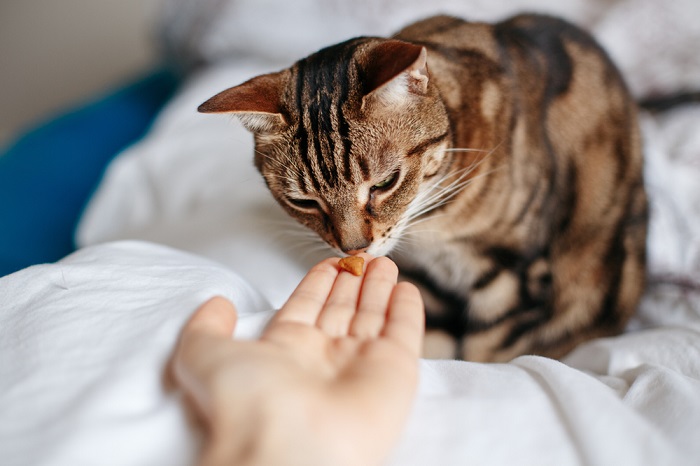
Heartgard for Cats is a palatable chewable tablet that may be fed directly or added to your cat’s food.
Heartgard is recommended only for use in cats at least 6 weeks of age and older.
The actual dosage of Heartgard is 10.9 micrograms (mcg) per pound.
Heartgard for Cats comes in two dosage sizes for cats that are either less than 5 pounds (55mcg) or cats that weigh between 5 and 15 pounds (165mcg). For cats that weigh more than 15 pounds, the manufacturer recommends combining tablets to reach the proper dosage.
For example, a cat weighing 17 pounds would receive a combination of the 5 to 15 pound dose, plus a less than 5 pound dose. A cat weighing 21 pounds would receive two of the 5 to 15 pound doses.
Heartgard for Cats provides the best protection if given every 30 days.
The manufacturer does indicate that Heartgard can be given seasonally, depending on the activity level of mosquitoes in the environment. An initial dose must be given within 30 days after a cat’s first exposure to mosquitoes to still be able to target the stage 4 larvae.
Likewise, a final seasonal dose must be given 30 days after a cat’s last exposure to mosquitoes.
This “seasonal” method does become problematic, as many people may underestimate when mosquitoes become active in the spring and how late into the fall they may persist. There can also be a great deal of variability on the length of a “season” depending on the region.
Mosquitoes do also have the potential ability to overwinter indoors with the right environmental conditions. This is why most veterinarians recommend using a heartworm preventive year-round, even for indoor cats.
For cats that have been confirmed to have active heartworm disease present, the American Heartworm Society (AHS) has recognized that giving Heartgard monthly for two years may help to reduce worm burden. However, this is still not considered a treatment in the sense of being able to eliminate infection.
The Heartgard for Cats tablets are chewable. They can be given to a kitty by hand or added to food. It is very important to ensure that a cat receives the full dose.
The manufacturer recommends that if the chewable is not chewed and eaten, and if manual administration is needed, that the chewable tablet be broken up into small pieces to be given.
Food should also be made readily available on the day of administration, as this helps with absorption of the medication.
If a dose is suspected to be lost, rejected (i.e., you find the remains of the tablet on the floor later because your cat spit it out), the manufacturer recommends giving a second dose.
Conclusion
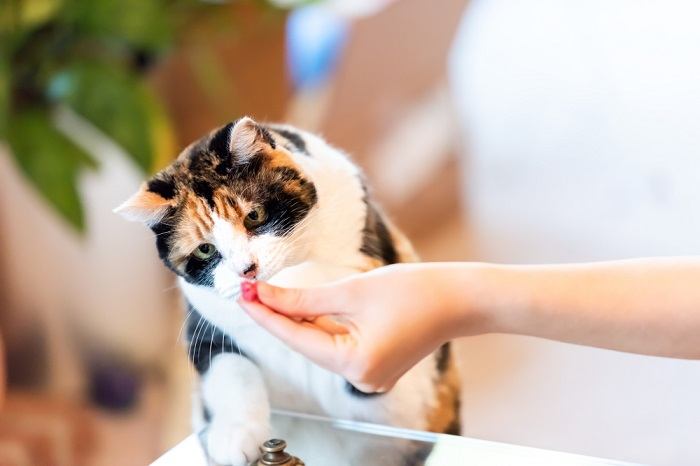
Heartgard for Cats is widely recognized to be a safe and effective medication for the prevention of heartworm disease in cats. However, as a preventive medication that is only labeled for heartworms and hookworms, it does have a more limited spectrum of action compared to some other preventive medications that are available.
Drug Dosing Disclaimer: We are only able to provide doses for medications that are FDA approved for use in cats and only as the label guidelines dictate. For medications that are used off-label we can only provide guidelines and safety information for use. Safe and appropriate dosing for off-label medications can only be determined by a primary care veterinarian.
We encourage you to work with your veterinarian to determine if a particular medication is appropriate for your cat. Changing or adjusting a dose for your cat on your own without consulting with a veterinarian can carry risk. We do not encourage use of medications prescribed for human use in pets without first consulting with a primary care veterinarian.
Frequently Asked Questions
Do indoor cats need Heartgard?
In short, yes. It is true that indoor cats are at a lower risk from mosquito exposure than outdoor cats are. However, there is no home that can be completely proofed as a barrier against mosquitoes. In some studies over the years, as many as 15 to 25% of heartworm-positive cats were considered indoor cats, highlighting the risk that is still present to indoor kitties.
There are components to heartworm disease in cats that make it a difficult disease to diagnose and recommend therapy options for. It’s also important to remember that a single worm may cause a fatal reaction when it eventually dies.
Until that time, most infected cats are asymptomatic. However, some cats also develop asthma-like symptoms earlier in the infection that may lead to a misdiagnosis.
Missing a diagnosis of heartworm in cats in common. Testing cats for heartworm is problematic, as the antigen test only detects a female worm. If a cat has only a single worm and if that worm is male, the cat will have a negative test even though an infection is present. The antibody test indicates exposure, but not active infection.
For these reasons, heavy focus is placed on prevention, and this includes many veterinarians recommending year-round prevention even for indoor cats.
Can I give Heartgard to cats?
Yes, but it is important to only use Heartgard for Cats, which has dosage sizes that are appropriate for cats. The Heartgard or Heartgard Plus tablets for dogs should not be split up for use in cats.
The chewables are not scored, meaning that the medication is not necessarily evenly distributed between two ends of a tablet. If a tablet is broken or split, the amount of medication in the subsequent pieces may be highly variable. This could lead to an overdose of the medication, or a subtherapeutic dose.
What does Heartgard do for cats?
Heartgard for Cats is specifically labeled for the prevention of heartworms in cats, as well as the treatment and control of hookworms. The ivermectin in Heartgard is effective in killing the fourth-stage larvae of the heartworm, which is present within the first two months of infection. The manufacturer recommends use within 30 days of mosquito exposure for prevention of disease.
For cats that have fully mature heartworms present, there is no treatment that will safely eliminate the infection. However, monthly use of Heartgard for two years has demonstrated a reduction in worm burden.
Do cats need heartworm pills?
Yes, cats should be on a heartworm preventive medication. Heartworm disease in cats is very dangerous, as the death of only a single worm when it reaches the end of its life span in two to three years can lead to a fatal immune reaction in the pulmonary blood vessels supplying the lung tissues of an infected cat.
Heartworm associated respiratory disease (HARD) can be easily confused with feline asthma or bronchitis, and diagnosis of heartworm disease in cats is tricky due to testing being less reliable in cats compared to dogs.
Even indoor cats should be on heartworm prevention, as a bite from a single infected mosquito can cause disease and no home can be fully proofed against mosquitoes.
Although the manufacturer of Heartgard provides guidelines for seasonal use, the perception of mosquito “season” may be different to different people. Many may misjudge how early mosquitoes may appear in the spring and how long they may persist in the fall. The “season” of mosquito presence may also vary greatly depending on the region of the country, with some regions having mosquito presence year-round.
Because of the insidious nature of heartworm disease in cats, its potential for causing an acutely fatal reaction in a cat otherwise appearing healthy, the poor predictability of transmission seasons and the fact that there is no treatment for cats with active heartworm disease, many veterinarians recommend use of a heartworm preventive year-round.
